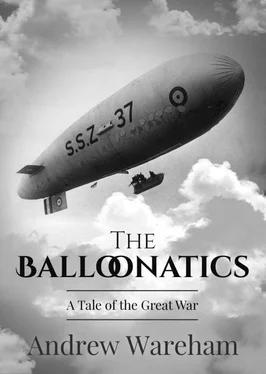Peter reflected that Sir John French, in command of the British Expeditionary Force in France, was renowned for his indiscretions with the female sex; it would not have done in the Navy. Imagine what Jacky Fisher would have had to say!
“Have you sailed far overseas, Lieutenant Naseby?”
“Only to the Mediterranean, Miss Hawes-Parker. Most of my service has been in home waters. I have not seen St Petersburg, certainly.”
“That is a strange city, sir. Rich – full of shops almost to match Oxford Street and with aristocrats displaying their furs and jewels in a fashion we would find somewhat vulgar. Yet there are thousands dying of famine in those same streets, ignored by their rulers. We were told of bread riots every week of the winters.”
“Yet they have joined their armies by the million and have served their Tsar.”
She snorted, unimpressed by what seemed to her to be a naïve comment, sounded far older than her sixteen or seventeen years.
“They have no choice in that, sir! Conscripted under the lash of the Cossacks, driven to the ranks where they are treated with brutal contempt. Hungry and beaten and forced to advance against the machine guns, hoping to overwhelm them simply by number. We heard last year from friends remaining at the embassy that very often they had no rifles, that the front two or three lines would be armed and those in the rear would pick up the guns dropped by the fallen. Even then, they might not have been taught how to load or take an aim.”
“Small wonder that they were defeated and driven out of Prussia and well to the east after their initial invasion in ’14.”
“No wonder at all, sir. I met their General Samsonov when he came to drink tea of an afternoon, informally. Not a clever man! Indeed, not even ordinarily sensible, I would have said. Born to the higher ranks of their aristocracy and hence promoted to his ‘proper’ level. I know nothing of generalship – I suspect he understood no more than me. I am told he shot himself in despair after his defeat. He might have been better advised to do so beforehand so that another general could have avoided that disaster.”
Peter thought that was somewhat harsh, even if amusing.
“We can expect little of our Russian allies, then.”
“Nothing at all, my father said. He thinks they will fall into revolution, the events of 1905 repeated more effectively. The war will result in a worse defeat than the Japanese dealt them and the country will collapse this time.”
It was a strange conversation to hold with a young girl – females of that age were supposed to know nothing other than the arts of attracting a husband. Miss Hawes-Parker was evidently of a unique sort.
The train stopped at a tiny station.
“Sompting. Next is Portslade, the station for Shoreham, I believe, Miss Hawes-Parker.”
“I shall have to catch the eye of a porter to retrieve my baggage. I do hope there will be one free.”
“Not to worry. I can see to that.”
Five minutes and they stopped, Peter handing the young lady down. He spotted the station master, far too dignified a personage to carry a case, signalled to him.
“Miss Hawes-Parker has a trunk and suitcase in the guard’s van. Please see to it.”
The sole porter, aged and overweight, was sent scurrying to the task, hauled both onto his trolley and added Peter’s single suitcase to the load, took them outside. There was just one horse-drawn cab available.
Miss Hawes-Parker was placed inside the vehicle, gave the address in Shoreham and then wondered that Peter was not to join her.
“No, Miss Hawes-Parker. Not at all the thing for a naval officer to be seen escorting a young miss to her home. The neighbourhood would be up in arms!”
She feared he might be right, from the little she knew of English behaviour.
“I shall use the telephone and call for transport from my people.”
The cab drew away and he exchanged grins with the stationmaster.
“Can’t be sharing cabs with young ladies, sir. Not at all right and proper. We have a telephone at the station, sir, installed by the Navy, to call them to collect their people. Just one moment while I engage the machine, sir. Lieutenant…”
“Naseby. Posted with effect this day.”
The stationmaster trotted inside and attacked the new device with all of his authority, roaring into the mouthpiece while gripping the hearing bell tight to his ear.
“They will be here within thirty minutes, sir, possibly with one of those motorised carriages that seem to be the new thing. They call it a ‘tender’, sir, which may be naval habit.”
“The RNAS is all about novelty, Stationmaster. After all, what can be more new than flying, in the air?”
That was very true, the exponent of steam admitted.
“We see their balloons, and hear them, every day when the wind is not too high, Lieutenant. Most strange to see their huge gasbags with a little box underneath containing men and a gun and an engine. One can see a huge bomb attached as well, to destroy those wicked submarines. You are to fly one yourself, are you, sir?”
“I hope so. Provided I am suitable and can learn the skills. The submarines are a menace and we must all do our best to destroy them.”
“That is so, sir. Will you join me in a cup of tea, sir, at the little café just a few yards down the road? No train due for another hour and I habitually take my break just now of a morning.”
That was, of course, a welcome invitation. The stationmaster was an important local figure and must be treated with respect. He could be useful as well. Sailors off on leave would commonly use his station, and those returning, sometimes drunk and needing assistance. An unfriendly stationmaster might see the drunks handed over to the local constable; one on the right side would simply telephone the field.
Tea and a slice of cake apiece, Peter insisting on paying – the stationmaster had been most kind and helpful to the young miss who had shared his compartment.
“Should not have been sent off on her own, sir. I expect her school thought it was only a few stations down the line and that she could look after herself as she was not returning and therefore grown up. Not right, in my opinion, sir.”
The Stationmaster agreed. The young miss should have been accompanied. It was only proper. His own daughters would not be riding the railways alone, that he assured the Lieutenant.
A rattling and clattering motor brought their conversation to an end.
There was a motor vehicle, painted naval grey, and a rating in bell-bottoms in the driving seat.
“My transport, sir. Thank you for your assistance, sir. I expect we shall see each other frequently over the next months.”
It was the Stationmaster’s pleasure to assist the Royal Navy, he was assured. Peter believed the pompous little man, too; he would do his best to aid the war effort.
“Lieutenant Naseby, sailor. Joining HMS Shoreham.”
“Aye aye, sir. I’ll just get your case aboard, sir. If you will sit up at the rear, sir. Not very comfortable, but not a long journey.”
The vehicle was a Crossley Tender, open to the elements with a pair of wooden benches set longitudinally in the rear, over the solid rubber tyres. There was a spare seat next to the driver, forward facing and with some upholstery.
“Unless it’s against standing orders, I’ll sit in the front… What’s your name?”
“Jackson, sir. Ordinary.”
“Right, Jackson. Those wooden benches look hard, to me.”
“Yes, sir. Regulations are passengers to the rear, sir, but the Commander ain’t too worried about them.”
“Right. Front will do for me.”
They pottered off on unmade roads, gravelled by the station, graded dirt outside, through hedged fields, mostly pastureland carrying small herds of milk cattle.
Читать дальше












